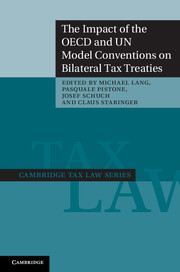Book contents
- Frontmatter
- Contents
- Contributors
- Preface
- Table of cases
- Table of statutes
- General report
- 1 Argentina
- 2 Australia
- 3 Austria
- 4 Belgium
- 5 Brazil
- 6 Canada
- 7 Chile
- 8 China
- 9 Colombia
- 10 Croatia
- 11 The Czech Republic
- 12 Estonia
- 13 Finland
- 14 France
- 15 Germany
- 16 Hong Kong
- 17 Hungary
- 18 India
- 19 Italy
- 20 Lebanon
- 21 Liechtenstein
- 22 The Netherlands
- 23 New Zealand
- 24 Norway
- 25 Peru
- 26 Poland
- 27 Portugal
- 28 Romania
- 29 The Russian Federation
- 30 Serbia
- 31 Slovakia
- 32 Slovenia
- 33 Spain
- 34 Sweden
- 35 Uganda
- 36 The UK
- 37 The USA
- Index
- References
3 - Austria
Published online by Cambridge University Press: 05 November 2014
- Frontmatter
- Contents
- Contributors
- Preface
- Table of cases
- Table of statutes
- General report
- 1 Argentina
- 2 Australia
- 3 Austria
- 4 Belgium
- 5 Brazil
- 6 Canada
- 7 Chile
- 8 China
- 9 Colombia
- 10 Croatia
- 11 The Czech Republic
- 12 Estonia
- 13 Finland
- 14 France
- 15 Germany
- 16 Hong Kong
- 17 Hungary
- 18 India
- 19 Italy
- 20 Lebanon
- 21 Liechtenstein
- 22 The Netherlands
- 23 New Zealand
- 24 Norway
- 25 Peru
- 26 Poland
- 27 Portugal
- 28 Romania
- 29 The Russian Federation
- 30 Serbia
- 31 Slovakia
- 32 Slovenia
- 33 Spain
- 34 Sweden
- 35 Uganda
- 36 The UK
- 37 The USA
- Index
- References
Summary
The relevance of the OECD and UN Model Conventions and their Commentaries for the interpretation of Austrian tax treaties
The Austrian tradition in concluding double tax treaties dates back to the end of the nineteenth century when the first Austrian tax treaty between Austria and Prussia was concluded. Today, around eighty treaties are in force.
Most of the Austrian tax treaties follow the OECD Model Tax Convention on Income and on Capital (OECD Model). However, the following chapters will show that some elements of the United Nations Model Double Taxation Convention between Developed and Developing Countries (UN Model) can also be found in Austrian double tax treaties, especially when the latter were concluded with non-OECD Member countries. However, in general terms, the OECD Model current at a time the respective treaties were/are concluded played and still plays a major role. Only some of the treaties were amended after they had been concluded, following the changes made in the posterior OECD Model. Hence, there is an ongoing debate on how old treaties should be interpreted. Legal scholars and the Austrian tax administration only agree on some points, especially on the question of how a treaty should be interpreted at the point in time when it is concluded. In the case of contracting states which do not only use the OECD Model as a basis when agreeing on their own treaties, but later on adopt the provisions of the OECD Model exactly as they are, there should be no doubt that the contracting states should also attribute the same meaning to the provisions included in their treaties as they have in the OECD Model and its Commentary. States agreeing on a wording which is different from the OECD Model, although no different meaning was intended, must also interpret the treaty as suggested by the OECD Model and its Commentary. If (one of) the contracting states (has) have entered a reservation on a certain provision of the OECD Model or simply agree(s) on a provision with a different meaning, neither the OECD Model nor the Commentary is applied. Similarly, the Commentary has to be disregarded where the contracting states have agreed on including an observation in their treaties.
- Type
- Chapter
- Information
- Publisher: Cambridge University PressPrint publication year: 2012

